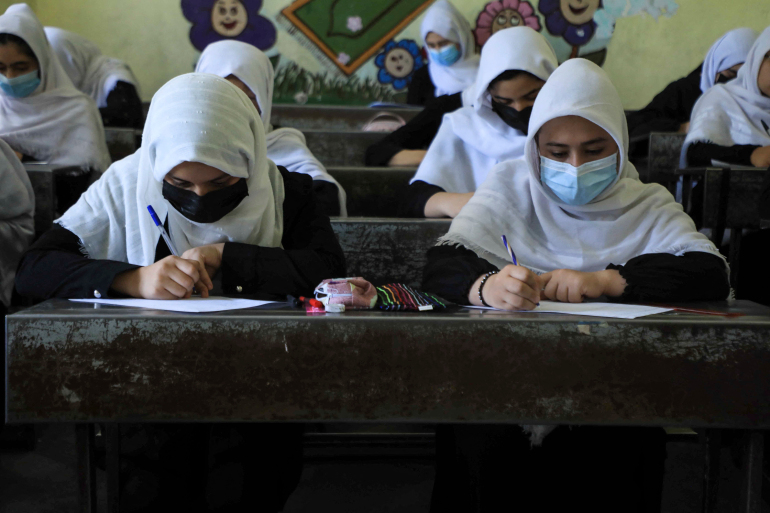In 2012, the United Nations declared October 11 the International Day of the Girl (IDG) to “Promote the empowerment of young girls everywhere, while also advocating for the attainment of their basic human rights, like education and bodily autonomy.” The theme for 2022 is “Our Time is Now- Our Rights, Our Future.” And for those who’re already asking what of the boy child? Is he not important? Doesn’t he deserve a day? Let me say this: yes, every human is important. Our boys as well as girls, but across the developing world, especially, girls face more structural challenges to achieving their dreams than boys do, face the threat of violence more and generally live in more vulnerable situations than boys do. So, a day like this forces everyone – policy makers, governments, parents, society- to reckon with the type of world girls are inheriting and to be intentional about doing better. And by the way, some professors in Trinidad and Tobago did declare May 16 the World Day of the Boy Child (WDBC) in 2019 because he was salty about there being none. He – and every other person whose instinct is not to acknowledge that we need to do better by our girls- misses the point of why IDG needed to be declared in the first place. Imitation isn’t always the sincerest form of flattery. Sometimes, it’s a distraction. My Naija people, our boys’ matter but our girls matter too. And their case is critical.
In so many of our homes, outdated gender roles are used to keep girls cleaning and cooking, preparing them to be “someone’s wife” while boys are allowed to sprawl out and watch TV , in training to be someone else’s burden. Boys are given the time to study and allowed to occupy spaces their sisters are barred from. Someone told me recently that when she asks her daughters to help her in the kitchen, she is teaching them ‘discipline.’ Boys no need discipline? Okay oo.
Not only are our girls more likely to be saddled with household chores, they also represent a greater number of our out-of-school children. According to a Malala.org report, about six million Naija girls are out of school. Apparently, 30 per cent of our girls between 9 and 12 years old have never even seen the four walls of a classroom. That’s staggering. If education/knowledge is power, then we aren’t equipping these girls for any kind of useful future. And even those who are lucky enough to be in schools are dealing in some cases with outdated curricula. Don’t get me started on the elementary school lessons I listened to on a Naija broadcasting station during the lockdown. Tufiakwa!
In any case, not only are there more Nigerian girls out of school than boys, per a UNICEF report, Nigeria has the largest number of child ‘brides’ on the continent. According to the UN’s 2020 development report, 43 per cent of Nigerian women (22 – 23 million) ages 20 to 24 had been married by the age of 18. As far as I’m concerned, marriage is a contract between consenting adults. A child cannot consent and can, therefore, not be a wife. These young ‘brides’ are victims of a sexual crime, and society is failing them by allowing grown men claim them as wives. When girls are empowered to stay in school longer, they are less likely to be forced into these sham marriages.
Furthermore, Nigerian girls experience more physical and sexual abuse than boys. A study by the United Nations Population Fund (UNPFA) reveals that nearly 3 in 10 Naija women experience physical violence by the time they turn 15. And as for sexual abuse? Where does one start? Talk to any Naija woman who grew up in Nigeria. These stories abound. Drivers, pastors, cousins, uncles, friends, teachers, doctors, houseboys etc who sexually abuse young girls because culture makes it easy for sexual predators to operate without fear of being reported. I heard recently of some really wealthy Nigerian daughters – I forget who now- who made a blog about their family driver touching them inappropriately while taking them to school. They never reported him because they’d somehow felt responsible, taking on the shame. Instead, they found ways to protect themselves from his lecherous touching including all of them sitting in the back of the car, away from his reach.
If children are our future, then we really need to invest in the protection of our girls by making it easier for victims of sexual assault to report their assault. The predominant culture of victim blaming and shaming (I’ve written about this before) enables the silence that makes this crime thrive. There also needs to be more work done on sensitising the youth on the gravity of sexual assault and dismantling the narrative that sexual harassment is harmless and that men rape because they cannot control themselves. Shebi these men know not to put food in their nostrils? They know not to poo in their plates?
Our government must also be pressured into investing in the education of our boys and girls. After all, when life improves for our girls, it also does for our boys. UNESCO recommends that countries allocate 15- 26 per cent of their national budget to education. In 2020, Nigeria allocated only 6.7 per cent. This year, it allocated 7.9 per cent. An improvement but still below UNESCO’s recommended benchmark. So, lots of room for improvement there.
As everyone knows that whatever benefits the girl child, also benefits the boy child, and therefore benefits the society. So let us all -government and individuals- work towards empowering our girls so that the future is bright for us all. Church, say Amen!

 Join Daily Trust WhatsApp Community For Quick Access To News and Happenings Around You.
Join Daily Trust WhatsApp Community For Quick Access To News and Happenings Around You.


